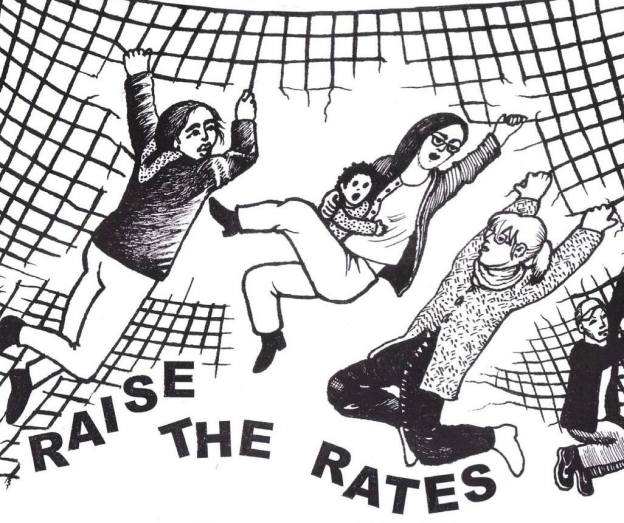Shila is a third year Bachelor’s of Social Work student, a queer woman of colour, and an international student from Indonesia passionate about food, politics, and anti-oppressive social work practice.
Samantha is a Vietnamese Chinese Canadian teenager born and raised in south east van. She is in her third year at UBC and plans on majoring in social work with a focus in community development and mental health.
Introduction
Last week, we each signed on to be part of Raise the Rates BC’s 3rd Annual Welfare Food Challenge. BC has both the highest rate of wealth inequality [1] and the highest child poverty rate [2] in Canada. We are also the only province without a poverty reduction strategy. The Welfare Challenge campaign is designed to raise awareness of the serious effects of stagnant social assistance rates in BC, by asking participants to live off only the food they can purchase with $21 for a week. To increase awareness among our colleagues, friends, and family members, we document meals, thoughts, and feelings on social media using #raisetherates. We joined over 100 people participating across the province, including musician Bif Naked.
Samantha:
I have come to realize throughout this challenge that I hold many privileges; I am financially stable, able bodied, educated, connected to and surrounded by allies. Because of these privileges I have been able to experience comfort in my daily routine despite eating on $3 a day. For example I am able to freely access, cell phone service, my medications, clean cloths and a warm bed. Through these factors it is clear that participating in the welfare food challenge is not at all comparable to someone who is forced to live on welfare. After coming to these realizations, I felt guilty, uncertain, and confused as to how I should approach the rest of my challenge.
I have decided to complete this challenge because I believe that I have a responsibility to speak up for those who are silenced. My father and mother were on welfare when they arrived to Canada as immigrants escaping from the Vietnam War. My two older siblings and parents experienced living on the cruel $800/month for a four-person family on welfare. I feel accountable for voicing their struggles, which were silenced through language barriers and fear of not receiving support. My intent is to raise awareness to the fact that current welfare rates are not adequate to live on, and rates need to be raised.
Shila:
After a few days of this challenge, the friends and family around me have started conversations about the unacceptable rate of welfare and poverty. Many have shared their stories about being on welfare and about how much of a struggle it was for them and their family. However, I’ve also heard quite a few oppositions to the idea of welfare, connecting it right away with the few people that they know who abuse the system, or with comments about the poor and welfare-recipients such as, “They are all just lazy.” Resorting to poor and welfare bashing is not only incredibly harmful, but an uninformed and self-centred view of the real struggles of over 177,000 people living in British Columbia.
Using an intersectional lens, we can see from so many studies that the majority of people accessing social assistance are folks with (dis)abilities, single mothers and their families, seniors, refugees, new immigrants, and Aboriginal and racialized people. Their realities include making decisions between buying low-in-nutrition inexpensive foods or living in a rat-infested SRO in the DTES. Another challenge is trying to find an affordable childcare space so they could go to their low-wage part-time jobs, or just trying to ignore a pair of our judging eyes and discriminatory comments on the street. These barriers are all part of a system that makes it hard for these folks to exit poverty.
These are the lived experience of thousands of people. How could we deny their realities by easily resorting to our ignorance? Have we fully listened and valued the fact that these stories are their truths ? Have we ever challenged our own judgments and stigma?
“To empathize is to recognize a person’s perspective as their truth, to stay out of judgment, and to try to feel with people. It is a vulnerable choice, because in order to connect with you, I have to connect with something in myself that knows the feeling.” –Brene Brown
How You Can Help
If you are interested in helping to raise welfare rates or fight stigma, these are a few ways you can take action:
- Sign the Raise the Rates petition;
- Engage in conversations with family, friends, and your community about social assistance, poverty, food security initiatives, and possible solutions;
- Contact your local MLA and MP offices to voice your concerns and suggest an action plan;
- Volunteer your time and skills at an organization that supports poverty reduction, such as BC Poverty Reduction and Carnegie Community Action Project;
- Get informed about upcoming elections. Exercise your right to vote. The Vancouver municipal election is on November 15, 2014 and the federal election is happening on October 19, 2015.




